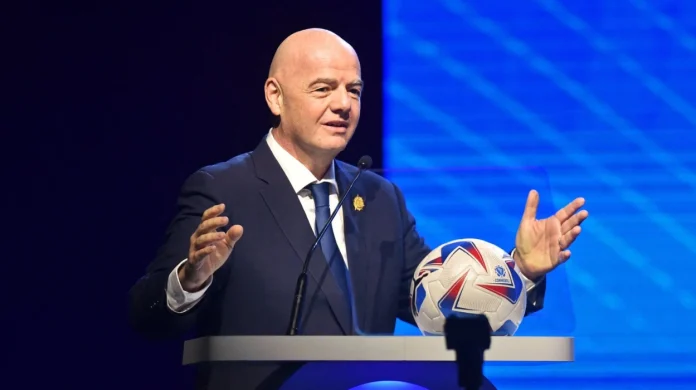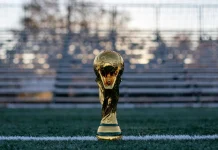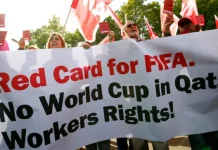The 2025 FIFA Club World Cup’s expansion to 32 teams and the inclusion of Inter Miami as the host nation’s representative has ignited a firestorm of debate across the footballing world. This controversy is not isolated to Major League Soccer (MLS) but is emblematic of broader questions about FIFA’s governance, transparency, and priorities in global football.
The Heart of the Controversy
Sporting Merit vs. Commercial Interests
The core issue is the perceived disconnect between sporting merit and FIFA’s discretionary power. Inter Miami, despite being eliminated early in the MLS Cup Playoffs, was granted a spot as the host club. Meanwhile, LA Galaxy, who won the 2024 MLS Cup and set a new record for titles, was left out, as were other clubs that arguably had stronger sporting credentials. This decision has led to accusations that FIFA prioritized commercial appeal—specifically, ensuring Lionel Messi’s participation—over sporting achievement.
Opaque Qualification Criteria
FIFA’s competition rules for the new tournament format do not clearly specify what happens when a qualified team is disqualified or when host nation representation is determined. Recent cases, such as the expulsion of Club León due to multi-club ownership regulations, have highlighted this ambiguity. The Court of Arbitration for Sport (CAS) upheld FIFA’s decision to remove León, but the process for selecting their replacement was not transparent, with FIFA retaining the right to fill the slot under the principle of “exceptional circumstance”. This has led to criticism that FIFA’s rules allow for arbitrary decisions, raising concerns about fairness and consistency.
Legal and Structural Challenges
The controversy is compounded by legal action from player unions and leagues over the tournament’s scheduling. The expanded Club World Cup adds significant strain to an already packed football calendar, raising concerns about player welfare and contract issues. Player unions like FIFPro and the Professional Footballers’ Association (PFA) have taken legal steps against FIFA, arguing that players’ rights and well-being are being ignored in favor of commercial expansion.
Key Themes and Stakeholder Reactions
1. Sporting Integrity and Fairness
LA Galaxy’s exclusion, despite their MLS Cup win, exemplifies the tension between sporting success and FIFA’s selection process. The club’s achievement was overshadowed by Inter Miami’s commercial draw, particularly Messi’s global appeal.
Costa Rican club Alajuelense, which argued for inclusion based on continental rankings, also saw their appeal dismissed, with FIFA opting instead for a possible play-off between LAFC and Club América, further muddying the waters.
2. Commercialization and Star Power
The decision to include Inter Miami is widely seen as an effort to maximize the tournament’s marketability. Messi’s presence guarantees higher global viewership, sponsorship, and media attention, but at the cost of undermining the principle of merit-based qualification.
This approach raises questions about whether the Club World Cup is evolving into a showcase for football’s biggest brands and personalities rather than a competition for the world’s best clubs.
3. Governance and Transparency
FIFA’s handling of multi-club ownership issues (as with Grupo Pachuca’s ownership of both Club León and Pachuca) and the lack of clear guidance on replacements has led to confusion and legal challenges.
The organization’s ability to make discretionary decisions under “exceptional circumstances” gives it significant power but also exposes it to accusations of favoritism and inconsistency.
4. Scheduling and Player Welfare
The expanded Club World Cup further congests the global football calendar, with many players facing minimal rest periods. This has prompted legal action from unions and criticism from league executives, who argue that FIFA is not adequately considering the impact on players’ health and contractual obligations.
Broader Implications
Erosion of Trust in FIFA
The controversy over Inter Miami’s inclusion and the broader qualification process is symptomatic of a deeper mistrust in FIFA’s governance. The perception that commercial considerations outweigh sporting integrity risks alienating fans, clubs, and players alike. The lack of transparency in decision-making—whether regarding host nation slots, multi-club ownership, or replacement procedures—undermines confidence in the organization’s commitment to fairness.
Impact on Club Football
The expanded Club World Cup was intended to raise the profile of club football globally, but the current controversy threatens to overshadow its sporting ambitions. Clubs that feel unfairly excluded may be less inclined to support future FIFA initiatives, while players may resist participation if their welfare is not prioritized.
Legal and Regulatory Challenges
Ongoing legal actions from clubs, leagues, and player unions could set important precedents for how FIFA and other governing bodies structure major tournaments. If courts rule in favor of greater transparency and player rights, FIFA may be forced to revise its processes and consult more closely with stakeholders.
The controversy surrounding Inter Miami’s inclusion in the 2025 FIFA Club World Cup is emblematic of the broader challenges facing FIFA as it seeks to expand its flagship tournaments. The tension between commercial imperatives and sporting integrity, coupled with opaque decision-making and legal disputes, threatens to undermine the credibility and appeal of the competition. Addressing these issues transparently and collaboratively will be essential if FIFA is to win back the trust of the global football community and ensure that the Club World Cup fulfills its potential as a true celebration of the world’s best clubs.













